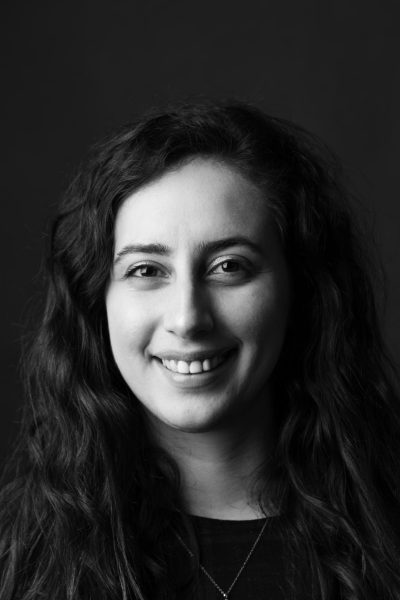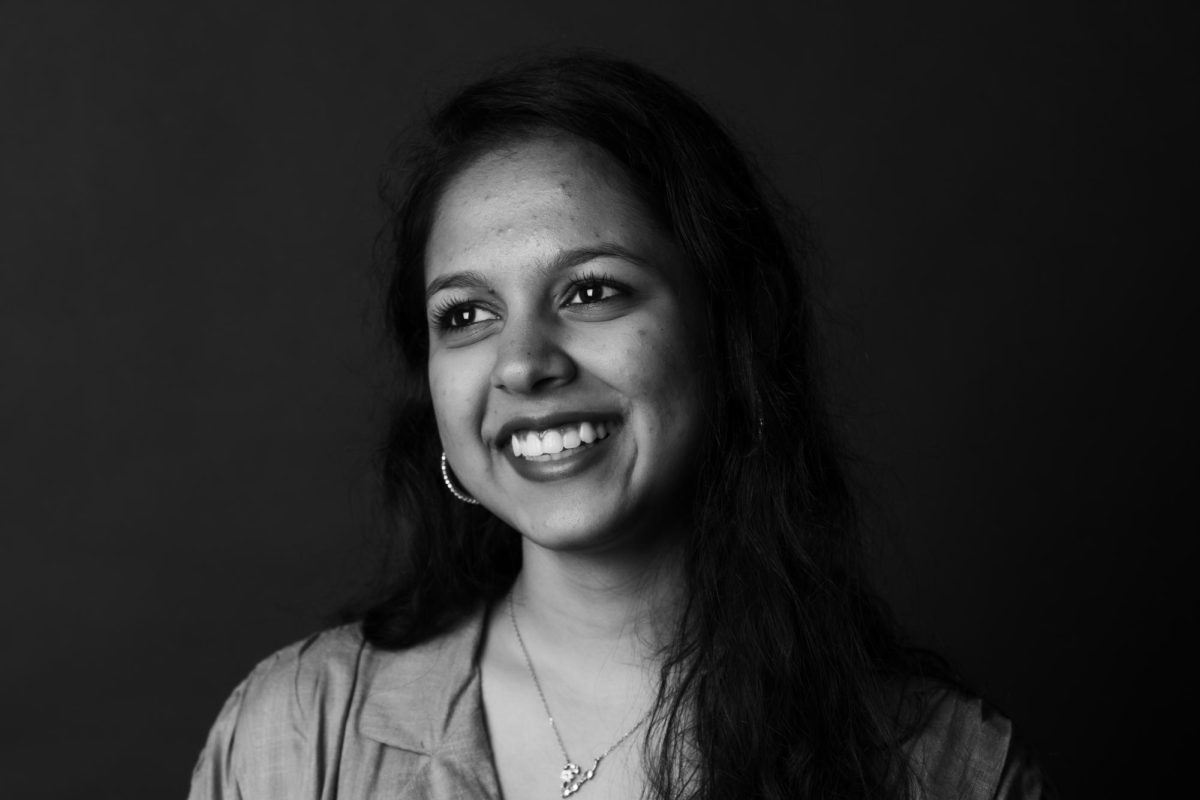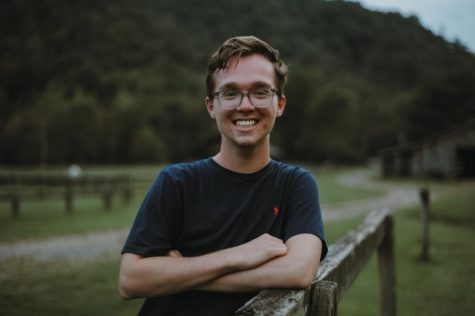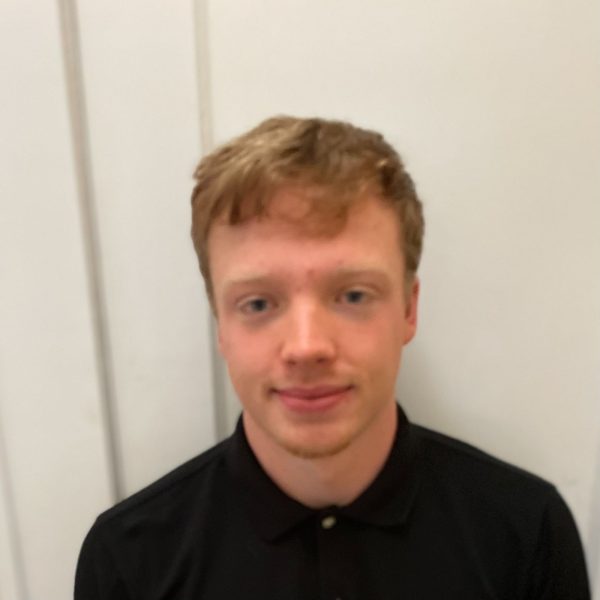On Aug. 22, 2022, Silva Keohulian packed her bags, said goodbye to her family and left her home in Lebanon to go to a place she had never heard of before: Boone, North Carolina.
Keohulian is a 24-year-old Fulbright Scholar who is graduating with a master’s degree in mathematics from App State in May.

In the 2023-24 academic year, App State had 110 international students studying at the university, according to the international student and scholar services and outreach.
Fifty-eight of these students are on F1 student visas, which means they are pursuing degrees, like Keohulian. Fifty-two students are on J1 visas, attending App State as a part of an exchange program.
These students at App State joined more than one million students studying in the United States from around the world, according to an open doors report, tracking international exchange programs in the United States. As the students at App State prepare to graduate in May, they reflected on their experiences studying in a new country and the lessons they plan to bring home with them.
According to the Fulbright website, Fulbright Scholars are chosen to “build their skills and connections, gain valuable international insights, and return home to share their experiences with students and colleagues.”
Each year, more than 1,700 Fulbright fellowships are awarded to students around the world and in the United States to study in universities, according to its website. Scholarships for the Fulbright program are fully funded by the U.S. Department of State.
Keohulian picked multiple universities she was interested in studying but she was ultimately selected to go to App State.
“I haven’t heard of App State, honestly, but a friend of mine had been here and he talked good things about the department and everything so I put that on the list,” Keohulian said.
The Fulbright scholarship allows participants to apply to four universities they are interested in studying. Keohulian applied to Northeastern University, University of Chicago, University of Connecticut and App State.
The U.S. Department of State placed Keohulian at App State in order to increase diversity and cultural awareness, Keohulian said.
Other students, however, cite varying reasons for choosing App State when coming to study in the U.S.
Vidhi Patel, a graduate student from Khambhat, India pursuing a master’s degree in computer science, said she came to App State because of family connections in North Carolina.
“My aunt lives in North Carolina,” Patel said. “So I was trying to get nearby some places and then I came up to see this App State.”
Keohulian identifies as Lebanese-Armenian and said she has faced difficulties at App State in preserving her cultural identity.
One difficulty Keohulian said was a struggle was with the food she could eat. She said it was hard to get the materials she needed to make food she was used to and often had to seek help from others to get ingredients.
Robert Onjiko, an international student from Kenya, said he experienced a similar struggle with food.
“I’m used to different things with what people eat around here and what people eat around here is not something we ate as a meal,” Onjiko said.
Patel said she had to find ways to make food she was more accustomed to when she first came to App State.
“It’s, like, all bland food,” Patel said. “So I used to buy spices from the nearby Indian store.”
Patel, Keohulian and Onjiko said they learned a lot about how to cook food from their respective countries when they came to the U.S.
“Hard times get the best out of you,” Keohulian said. “So I learned to be a chef, I went from beginner to like a top chef.”
In addition to the struggles of not having food to suit their palates, Keohulian and Onjiko said there were many misconceptions about their respective countries they tried to educate their peers on.
Keohulian recalls assumptions people made about her first time experiencing snow in Boone.
“It’s not my first time,” Keohulain said. “Lebanon is where you can go swimming and skiing in the same day.”
Keohulian said she could make a list of the misconceptions people in the U.S. have about Lebanon.
“The media always portrays bad things that we forget to see how rich the country is from nature, from the people,” Keohulian said. “The people are so generous, the food is so nice.”
Onjiko also said he had difficulty communicating with people because of his personality.
“Africans are extremely extroverted,” Onjiko said. “I found it really hard to interact with people and I started isolating myself because the Americans did not understand my culture and why I’m doing certain things.”
Patel said she struggled to make friends when she first arrived at App State.
“I was afraid because I thought about what they would think of me,” Patel said.
She said that if she spoke incorrectly, people would think she didn’t know specific little details.
Despite the challenges, Onjiko and Keohulian both said they are glad they came to App State. They said they are grateful to be able to form connections they otherwise would not have if they went to another university.
Onjiko graduated last year and works as a research technician in Boston as part of a program at App State that offers internships for international students while they stay on their student visas.
Onjiko said he is grateful for the lifelong friendships he made at App State which he continues to keep in touch with during his internship.
“At App State, it’s a small tightly-knit community where people know people,” Onjiko said.
Patel shared the sentiment and said she was deeply impacted by the ways people treated her with kindness at App State.
“People over here are so nice and friendly that they would just try to communicate with you and don’t make assumptions of yourself or your culture and they try to get familiar with you,” Patel said.
As a Fulbright Scholar, Keohulian spent much of her time hosting events and educating people about Lebanese culture. She said she loved hosting dinners for friends to introduce them to Lebanese food.
“Once you’re passionate about sharing your culture it all comes naturally,” Keohulian said. “All you need is acceptance and someone to hear and I was able to find that here.”
Patel said she wants to stay in the U.S. and get a job in the IT industry, as well as getting married to her fiance, who is studying in New York.
“I’m looking forward to staying over here in the USA and getting to explore more of USA culture and food and everything,” Patel said.
Onjiko and Keohulian both plan to go back to their countries and educate people about American culture as well as the things they learned while they were away.
Onjiko said he is hoping to pursue a doctoral degree at Harvard University, where he is a research assistant searching for a cure for malaria.
Onjiko wants to research a cure to the disease in Kenya to help friends and family who are suffering.
“Hopefully I can get back to my country and establish a lab over there, and, with the connections, the networks I already have and the knowledge, do more incisive studies and even collaborate with people working on the same projects here,” Onjiko said.
Keohulian said she wants to become a math educator in Lebanon and help students cultivate a more critical view of cultures, like the one she was able to develop in the U.S.
“I would go back to my home country and teach people about math, teach people about American cultures and the different misconceptions they have which are not true,” Keohulian said.
When Keohulian first arrived in the U.S., she said she struggled with a mix of feelings and being challenged by her own assumptions.
“Not everyone in the U.S. is a cowboy or an actor,” Keohulian said. “This is one of the misconceptions many people have.”



